Lucrecia Wang
A Cabinet of Honesty

In It Is About Time, Lucrecia Wang and her alter ego Lucy Winter-Jones present an immersive installation and a performative reading inside the Cirque Auditorium. In connection with the site’s history as a 19th-century anatomical theatre, the installation takes the shape of a cabinet of curiosities or a research bureau. The auditorium, equipped with dark wooden furniture, showcases microscopic tools for exploration and meticulously crafted clocks and watches that tell anything but time. These objects are used to manipulate and shield us from the time-eating parasite Tempus Devorantis, which induces an illness identifiable with a doomed sense of time and extreme empathy fatigue. This illness, under the name Chronomania, marks the world that Lucrecia and Lucy create in their reading, building a narrative in what seems to be a post-Victorian and post-industrial era. Rooted in her former nursing career, the project It Is About Time started with a personal frustration about the lack of care and time within health systems and her loss of the ability to care for others.

Dear Lucrecia,
At the dawn of both of our graduations and in light of your work, I felt it fitting to use this time to address you in a letter and express my gratitude for your honest project. Honesty is a virtue that is sadly too often lacking in our times of hyper-independence. The irony, of course, is that we need others. At some point in our lives, most of us will need others to take care of us.
In your earlier career as a nurse, you took care of many. During difficult shifts, you were responsible for more than a dozen people, and at night, the whole floor. It is very apprehensible that you lost your will to care for others, and as you later realised, that time itself was failing you.
I, for sure, can relate to you.
At the time of meeting you, I was rounding up the projects I had undertaken during my year in Curatorial Studies. I was proud but I was exhausted. Current debates on curating state that the profession should take on the responsibility of fostering a kind and caring world in which art and artists can healthily exist. For a large part, this is also why I chose curating as a field. But there are so many emotional and laborious pitfalls to the act of caring.
Did I go over the limits of my ability to care for others and myself? How has this affected the nature and quality of my interactions and connections? These are questions that I am sure many ask themselves, too.
In Delusions of Care, Bonaventure Soh Bejeng Ndikung puts into question the positively assumed nature of care, especially, when it too often implies an imbalance between the caregiver and the caretaker. I quote, “What is care in a system built on and framed around limitless profit, solely for profit’s sake?”1 Just as time itself is a construct, so is the value that is placed on it. Time is commodified and as a result, some people’s time is valued more than that of others. Can genuine care for ourselves, others, and the world around us truly occur in an incessant pursuit of productivity and constant competition?

The narrative you create and the assemblages you gather, severely affected by Chronomania, allow a peek at a world based on ours. The setting of the Cirque and the theatrical experience you allow cause a sense of displacement within the audience. What you address, however, is very much real.
It is no accident that the clock takes a central place in your installation as its relentless ticking reminds us of our fight against time. Your project emphasises the need for change within the exploitative systems of care. Too often enhancing class and gender inequalities, these systems exert an invisible act of body regulation.
I vividly recall you telling me that you started the project by searching for a justification as to why care left your body. You sought the origin of your failure and a solution to regain this inherent compassion. At this moment, I realised that this is an imposed gendered tendency.
You form a link between the origin of the parasite Tempus Devorantis and the start of time when Eve plucked the forbidden fruit and fated humankind as mortal. You presented me with the parasite, both flimsy in material and small in size, yet having a chokehold on our lives. If time is infinite but the nature of humans intrinsically contains an end, aren’t we set up to fail from the start?
During the creation of your minuscule and detailed work, you endured countless hours of repetitive gestures. I asked you, what is the difference between this time-enduring act as opposed to the one you experienced working as a nurse. Your answer was: “choice”.
The American author bell hooks writes that to love is an act of will, and that will also implies choice.2 Care is a vital aspect of love and, so, I would argue that we need to stand still and realise our active participation in the churning of the system.
Your title, It Is About Time, is not only a proclamation of what the project is about, but it is also an authentic assertion for action. Your honesty takes shape in the intricate testaments of your research and the stories you tell – all of which ask the viewer their time to discover and appreciate. You don’t shy away from admitting the relatable frustration and assumed weakness that is too often invisible in experienced fatigue and failure, but through your narrative with a sly wink, you allow for hope and inspiration.
I thank you for that.
With an honest heart,
Camille
1 Bonaventure Soh Bejeng Ndikung, Delusions of Care (Archive Books, 2021), 8.
2 bell hooks, all about love: new visions (Harper, 1999), 4–5.
Text by Camille Van Meenen, curatorial studies student
 Seppe-Hazel LaeremanslectureAgendaArtistic activities
Seppe-Hazel LaeremanslectureAgendaArtistic activitiesGrains of Sand Like Mountains makes a bridge to another cultural island in Ghent. Seppe-Hazel Laeremans organises a collective reading at the exhibition in Kunsthal Gent and a collective gathering at the experimental art space Het Paviljoen. They invite you along on a walking tour from one space to another.
The afternoon will start by gathering in the exhibition Grains of Sand Like Mountains where a collective reading will happen, hosted by Laeremans. This performance will seep into a walking tour, and the event will end at Het Paviljoen with a moment for afterthoughts on the grass of the Bijloke site. Seppe-Hazel Laeremans is one of the residents of the project, Jumping Fences in Het Paviljoen.
The picnic will provide vegan-friendly snacks and drinks. The walking tour from Kunsthal Gent to Het Paviljoen will last around 30 minutes.
Seppe-Hazel Laeremans
Seppe-Hazel Laeremans (b. 2000) is a Belgian graphic designer, artist, writer, and editor currently based between Porto and Ghent. Their work has been featured in De Verffabriek (Ghent), Projectvierennegentig (Ostend), EKA GD Stand-in School (Berlin) and Bikini Books (Porto). Seppe-Hazel is currently one of the residents of Jumping Fences in Het Paviljoen, Ghent.
Lange Steenstraat 14
9000 Gent
 thibault goudket, SGQ, Danzel’s Projects, AYATARU, Finding EmoconcertAgendaArtistic activities
thibault goudket, SGQ, Danzel’s Projects, AYATARU, Finding EmoconcertAgendaArtistic activitiesthibault goudket, 17:30 — Turbinezaal
Merging guitar loops with live electronic sounds that tickle the ear I’ll be taking the vulnerability of recording music on my own, in my home, to a live setting for the first time.
Thibault Goudket (gitaar, bas, electronics, drums)
SGQ, 18:30 — Kelderzaal
SGQ is a dynamic quartet driven by an unwavering passion and care for music. Ever curious, SGQ endeavors to find a sense of warmth and trust in the music and each other, creating a space of intense intimacy for the musicians and its audience.
Sam Goekint (drums), Jonas Paenen (piano), Tristan Tarras (double bass), Elly Brouckmans (altsax)
Danzel’s Projects, 19:30 — Turbinezaal
My master's thesis will consist of a collection of projects in which I am active. During my performance, I will make a long crescendo from an intimate set to a banging band that will make you dance.Frank Boddin (vocals, keys), Marte Truyers (vocals), Stan den Heijer (vocals, guitar), Dave Lantsoght (guitar), Robin Vantomme (keys), Inigo Grau (bass), Jef Denissen (bass) and Bartas Boots (alt-sax).
AYATURU, 20:30 — Kelderzaal
AYATARU is the world created by drummer/producer Thijs van Scharen. He blends his love for beats, beat making and deep groove, with influences ranging from UK breakbeat and the avant-garde hiphop scene of LA, IDM and spiritual jazz. All wrapped up in rich textures and warm sounds. Catching the moment as it comes and create new worlds where the head nod and dancing meets the deep thoughts within. This collage where each composition is a different scene, a different vibration can be viewed as a film – where the listener is guided through and can create their own narrative.
Ee (EWI, sax, bass clarinet), Alexis Boone (keys), Sander Huys (bass), Thijs van Scharen (drums)
Finding Emo (Tibo Polleunis), 21:30 — Turbinezaal
A once in a lifetime experience…literally! For his final school project Tibo Polleunis will channel his inner sad boy straight out of a 1999 high school movie. They’re here to break hearts and fuel your existential crisis! Dresscode = black.
Tibo Polleunis (drums), Edward Kuijken (bas), Tim Toegaert (gitaar), Achilles De Raedt (gitaar), Vincent-Laurens Seys (vocals)
Kraankindersstraat 2
9000 Gent
 Screenings film and animation film, KASKcinemafilmAgendaArtistic activities
Screenings film and animation film, KASKcinemafilmAgendaArtistic activitiesAt KASKcinema, there will be screenings of the graduation works film and animation film between 27 and 30 June.
THU 27.06
- 12:00 FILM 1
- 14:00 ANIMATION 1
- 16:00 FILM 3
- 18:00 ANIMATION 2
FRI 28.06
- 12:00 FILM 4
- 14:00 FILM 2
- 16:00 FILM 5
- 18:00 VISUAL ARTS
SAT 29.06
- 12:00 ANIMATION 2
- 14:00 FILM 3
- 16:00 FILM 4
- 18:00 FILM 1
SUN 30.06
- 12:00 FILM 5
- 14:00 VISUAL ARTS
- 16:00 ANIMATION 1
- 18:00 FILM 2
ANIMATION 1
Ieva Lība Ratniece, Wandering dot and the blank square page universe
Rune Callewaert, The Masque of the Red Death
Joeri Joris, De Kruikenman
Hasan Pastacı, Sphere Supreme
Danae Zegers, Saudade
Chloé De Backer, Heart to Heart
Gitte Le Bruyn, Gyrograph
ANIMATION 2
Stijn van Staveren, PLAK
Marthe Verschaeve, Afgewezen. Aanname van objecten
Stéphanie El Khoury, Filigrane
Babette Goemare, Opia
Elie Vindevogel, De Eenzame Roker 2
Helene Van den Broeck, Tuesday, September 21 - Tuesday, June 21
FILM 1
Mathilda Vermeulen, Every inch is covered
Luzia Johow, Droomadom
Anaïs Kaboré, Touch Me With Your Eyes
laura persijn, underneath it flickers
FILM 2
Lisa Coene, Almost There
Sélin Van Laethem, Fuga del Gato
Lore Loyens, Where the Black Sand Burns
FILM 3
Bao Van Hoe, Shadowplay
Hazel Dupont, Kerberos
Alexander Goesaert, At Least We Have Eachother
FILM 4
Noah Berhitu, Statues Rule the Waves
FILM 5
Asel Backhakova, Test 1
Isa de Grood, Een kat, een hond, twee konijnen en acht mensen
Luca Fetnaci, Sidi
VISUAL ARTS
Leon Decock, Oh Look!
Sofie Roelants, sleeping sun rise
Manon Jejcic, Le Jaune et le Bleu
Sarah Chapuis, Peau Neuve
Jules Mathôt & Cinemaximiliaan, In the Palm of My Hand
Cloquet
Godshuizenlaan 4
9000 Gent
 Expo & performances Graduation 2024expoAgendaArtistic activities
Expo & performances Graduation 2024expoAgendaArtistic activitiesSpread out over the Bijloke campus, you can discover the work of students in photography, graphic design, autonomous design, fine arts, textile design, fashion, musical instrument making, interior design, landscape and garden architecture, landscape development, digital design and development, curatorial studies, educational master in audiovisual and visual arts and the educational master in music and performing arts.
PERFORMANCES
Nora Allegaert, The wormsuit
29 & 30.06.24, 14:00-18:00
Try out the wormsuit in the company of the artist.
burger service (featuring Hilke Walraven), concert
27.06.24, 22:30———————entrance Cloquet
Suzanne Cleerdin, Progress written in the stars
27.06.24, 15:00
28.06.24, 15:00
29.06.24, 12:30
An audio-visual performance by
Suzanne Cleerdin, with Shadi Alaiek
Scenography: Eline Harmse
Audio technician: Isaac Moss
Paul Demets, Het woord niet gebroken
27.06.24, 19:00———————-auditorium Horta
Poems and prose excerpts by Palestinian and Ukrainian authors.
Marthe Huyse, Tafel voor Zes
No set hours———————-entrance hall KIOSK
Seppe-Hazel Laeremans, To Settle, To Unsettle
30.06.24, 15:00———————-Kunsthal Gent
Jumping Fences, Closing event
27.06.24, 18:30———————-Het Paviljoen
Jeandré Eli José, ANGELIC – IN&OUT
Performance (±60 min)
Facebook event
27.06.24, 20:30
29.06.24, 18:30
30.06.24, 18:30
With: Eva Calderone, Pingkan Polla, Rinus Martha Chaerle, Anthony Chang, Ashley Van Poucke & Jeandré Eli José
Partytent Art Center
Grand Opening in and around Bijlokesite
27 – 30.06.24
27.06, 19:00 at Horta Garden: talk with Liesbeth Huybrechts, Danielle van Zuijlen, Zeger Vetters, Mark van Hoek and participating artists.
@partytentartcenter for more information
With support of Stad Gent
Peter van de uitleendienst, Dirty Old … Town
27.06.24, 18:30———————-Terrace KASKcafé
Sailah Soundsystem, Outdoor Roots Reggae daytime session
27.06.24, 12:00-19:00———————–Horta garden
Naomi James Schatteman, INVITATION FOR CHANNELING A LIMINAL STATE (Preliminary methods and outlines for choreographic and spatial practices).
Performance (±45 min)
Reservations
27.06.24, 15:00 ———————- Atelier GBPAU.0.263 (next to tramzwart)
28.06.24, 16:30, 19:00 ———————- Atelier GBPAU.0.263 (next to tramzwart)
29.06.24, 14:00, 16:30 ———————- Atelier GBPAU.0.263 (next to tramzwart)
30.06.24, 16:30, 19:00 ———————- Atelier GBPAU.0.263 (next to tramzwart)
@naomijamesschatteman for latest updates
Mieke (Mik) Schelstraete, Experts are in the dark
27.06.24, 20:30———————-auditorium Horta
Ine Vanlitsenborgh, De Receptie
27.06.24, 18:00——————————Zwarte Zaal
K4SKPalestine, Screenprinting
27.06.24, 13:00------------------------------Esplanade Marissal
K4SKPalestine, Silent march
27.06.24, 17:30------------------------------Bijlokehof
Lucrecia Wang Jaramago, It is about time
Reading (±25 min)
27.06.24, 13:00, 15:00, 17:00, 19:00 ---------------------- Cirque
28.06.24, 13:00, 15:00, 17:00, 19:00 ---------------------- Cirque
29.06.24, 13:00, 15:00, 17:00, 19:00 ---------------------- Cirque
30.06.24, 13:00, 15:00, 17:00, 19:00 ---------------------- Cirque
approx. 10 spaces per session
Fri, Sat, Sun, 12:00 – 20:00
 Robin Lambrecht, Andreas Duchi, Jeane Flo, IKARO, BRINESconcertAgendaArtistic activities
Robin Lambrecht, Andreas Duchi, Jeane Flo, IKARO, BRINESconcertAgendaArtistic activitiesRobin Lambrecht, 17:30 — Turbinezaal
The music of Robin Lambrecht and his band is a fusion of post-rock and jazz, through set compositions with room for emotive improvisation. The band he gathers under his own name is a group of people close to his heart, which is key to sincerely conveying and sharing emotion within his compositions. The focus is on lyrical themes, the blurred line between composition and improvisation and to what extent instrumental music can be narrative. Robin's compositions have been described by others as cinematic, atmospheric, narrative, energetic and to dream away. This sums up what the project aims at; to make the listener dream away, both in a live and listening context, as would happen with a good book, series or film.
Roel Delplancke (drums), Stanzi Cresens (cello), Jesse Vandecaetsbeek (keys), Ruben Van Hijfte (bass), Robin Lambrecht (guitar)
Andreas Duchi, 18:30 — Turbinezaal
In an intimate setting, Andreas Duchi delves into the soulful resonance of the bass guitar. Whether sculpting melodies solo or in duet, his music beckons the listener into a realm of tenderness and warmth, imbued with a touch of mystique that lingers in the air. Join him on a journey where each strum is an invitation to explore the depths of musical expression.
Andreas Duchi (bass), Didier Deruytter (vocals)
Jeane Flo, 19:30 — Turbinezaal
Get ready for a musical explosion with Jeane Flo! Our band delivers a dynamic mix of powerful riffs, refreshing melodies and irresistible grooves that grab you from the very first chord. With a unique combination of influences from classic rock, funk and hard rock, we bring a contemporary twist to the genre. Get carried away by our energetic sound and experience a musical journey with Jeane Flo!
Maxime Aerts (guitar), Catherine Denayer (drums), Noah De Matos (bass), Lucas Heytens (keys), Heleen Desmet (lead vocal), Lisa Baert, Louke Vandorpe, Indira Bergmans (backing vocals)
IKARO, 20:30 — Kelderzaal
Ikaro was born from a shared love of (ethio)jazz, dub and afrobeat. Throw into the mix: feathery horns with a solid jazz background, a generous dash of rakia (fruit brandy, popular in the Balkans), a lavish dose of cutting guitar and bass riffs and energetic percussion, and a highly danceable and slightly mysterious sound is born. They performed on the Jonge Wolven stage at Trefpunt during the past Gentse Feesten, were among the East Flemish selection for Sound Track and whistlingly unite many jazz and rock lovers along the way.
Nele Vernaillen (flute), Cedric Haeck (bass), Kamiel Bossuyt (guitar), Bartas Boots (saxophone and kalimba), Oya Bakiroglu (darbuka, conga, bongo), Ferre Heyvaerts (drums)
BRINES, 21:30 — Turbinezaal
When Justine Rotsaert and Dave Lantsoght traded the Knokse beach for the rehearsal room, it soon produced sparks, which Dave skilfully channelled into fat beats and cutting electric guitar work. Combined with Justine's sultry voice, they arrived at a unique sound that no fresh North Sea dive could match.
Dave Lantsoght (guitar, vocals, synths), Justine Rotsaert (vocals, synths), Jens Dolleslagers (live mixing)
Kraankindersstraat 2
9000 Gent
 Xiaocheng Wang, Oscar Murillo Ardanuy, Yassine Posman, Luís Santos Melo, MIRY Concert hallconcertAgendaArtistic activities
Xiaocheng Wang, Oscar Murillo Ardanuy, Yassine Posman, Luís Santos Melo, MIRY Concert hallconcertAgendaArtistic activities- Xiaocheng Wang, 15:00 — clarinet
- Oscar Murillo Ardanuy, 16:30 — clarinet
- Yassine Posman, 18:00 — clarinet
- Luís Santos Melo, 20:00 — clarinet
Our classical music students hone their skills until they are ready for their exam recitals. You can attend this joyous occassion, as the exam concerts of master’s students of classical music and composition are open to the public. All concerts take place in our very own MIRY Concert Hall.
9000 Gent
 Wannes, Nautilus, I MALATI, Ruben Van Hijfte (feat. HAVAN), Toon Putteman TrioconcertAgendaArtistic activities
Wannes, Nautilus, I MALATI, Ruben Van Hijfte (feat. HAVAN), Toon Putteman TrioconcertAgendaArtistic activitiesWannes, 17:30 — Turbinezaal
Wannes, as the only band member, will transform the stage into a musical laboratory where groovy beats and the sound of his guitar merge into a unique improvisational experience. During this performance, Wannes will take the audience on a journey where he utters every note like a story and considers every beat an adventure. Prepare for an evening full of surprises and musical discoveries, as Wannes is ready to transcend the boundaries of the familiar and add a new dimension to the concept of "live performance".
Wannes (Guitar, Bass, Keyboard, Drum computer)
Nautilus, 18:30 — Kelderzaal
Nautilus is four musicians embarking on a vessel exploring their inner self. The music written is a reflection on certain emotions or conditions one might encounter and is a personal musical interpretation of such feelings and struggles. Life is unpredictable and we must be prepared for any circumstances good or bad coming our way. The Nautilus created by Jules Verne is now heading towards yet another mysterious universe. The only one place human beings often fear. The inner self.
Arnaud Guichard (Tenor Sax), Leonard Steigerwald (piano), Otto Kint (double bass), Mattia Gobbo (drums)
I MALATI, 19:30 — Turbinezaal
The experimental octet I Malati brings on the stage an intriguing blend of rock suggestions and free improvisation, poetry and brutality. It is evidently a complex language with intricate layers of sound, rich thematic variety and colorful kaleidoscopic weaves of melodic and rhythmic textures. However, the obliqueness of the meta-theatrical voice, the melodic sweetness and the fiery projection of the blowers, the roughness of the distorted guitar lead the listener to a raw human dimension, providing a fascinating contrast and enriching the emotional narration of the music.
Nathan Isahakyan (spoken voice), Luís Melo (clarinet), Loïs Pluymers (alto), Arnaud Guichard (tenor), Gonçalo Oliveira (electric guitar), Francisco Morato (electric bass), Mattia Gobbo (drums), Aleksandar Škorić (percussions).
Ruben Van Hijfte (feat. HAVAN), 20:30 — Kelderzaal
Rhythmic smiles, heartfelt lyrics, and a hefty dose of Hindustani Classical to fill up your love tank ^^.
Hanne Dollery (piano, guitar, vocals), Robin Lambrecht (guitar), Nathan Goessens (drums), Oya Bakiroglu (doholla), Seppe Vermeiren (sitar)
Toon Putteman Trio, 21:30 — Turbinezaal
Toon believes that the best music is created in the moment of total surrender. To reach this point, there must be a rock-solid form of trust and curiosity within a group. For this, he looked for musicians who have spent countless hours in rehearsal rooms with a passion for improvisation and a singular vision. Spurred on by his current teacher Lander Gyselinck, Toon writes compositions that are a reconciliation between contemporary jazz, free improvisation and the occasional touch of electronica. Each composition is seen as a blank canvas. In it, they search for the limits of both the musical framework, their own creativity, physical possibilities, the musicians' ears and the audience's ears. Expect an adventurous concert in which three young musicians, connected by their love of jazz, interact, improvise and create through their instruments.Toon Rumen (bass), Thibaut Deryckere (piano), Toon Putteman (drums)
Kraankindersstraat 2,
9000 Gent
 Avant-premières film and animationfilmAgendaArtistic activities
Avant-premières film and animationfilmAgendaArtistic activitiesSphinx Cinema is the decor where master students of audiovisual arts project their graduation works into the world. Proudly, they present their fiction films, documentaries, video works and animated films. On Tuesday 25 June, you can watch the new batch of films and animations.
If you cannot attend the avant-premières, you can visit KASKcinema on the Bijloke campus from 27 June onwards. The films of the graduating master students will be screened there until 30 June.
PROGRAMME
- 17:00 Zaal 1 > FILM 1
- 17:30 Zaal 2 > FILM 2 +Live projection Test 1, Asel Bakchakova
- 17:30 Zaal 3 > ANIMATION 1
- 19:00 Zaal 1 > FILM 3
- 19:15 Zaal 3 > FILM 4
- 19:30 Zaal 2 > ANIMATION 2
- 21:00 Zaal 1 > FILM 2
- 21:00 Zaal 2 > FILM 1 +Live projection Test 1, Asel Bakchakova
- 21:15 Zaal 3 > ANIMATION 1
- 22:45 Zaal 3 > FILM 3
- 23:00 Zaal 1 > FILM 4
- 23:00 Zaal 2 > ANIMATION 2
ANIMATION 1
Ieva Lība Ratniece, Wandering dot and the blank square page universe
Rune Callewaert, The Masque of the Red Death
Joeri Joris, De Kruikenman
Hasan Pastacı, Sphere Supreme
Danae Zegers, Saudade
Chloé De Backer, Heart to Heart
Gitte Le Bruyn, Gyrograph
ANIMATION 2
Stijn van Staveren, PLAK
Marthe Verschaeve, Afgewezen. Aanname van objecten
Stéphanie El Khoury, Filigrane
Babette Goemare, Opia
Elie Vindevogel, De Eenzame Roker 2
Helene Van den Broeck, Tuesday, September 21 – Tuesday, June 21
FILM 1
Mathilda Vermeulen, Every inch is covered
Lisa Coene, Almost There
Luca Fetnaci, Sidi
FILM 2
laura persijn, underneath it flickers
Anaïs Kaboré, Touch Me With Your Eyes
Alexander Goesaert, At Least We Have Eachother
FILM 3
Sélin Van Laethem, Fuga del Gato
Noah Berhitu, Statues Rule the Waves
Bao Van Hoe, Shadowplay
FILM 4
Luzia Johow, Droomadom
Hazel Dupont, Kerberos
Isa de Grood, Een kat, een hond, twee konijnen en acht mensen
Lore Loyens, Where the Black Sand Burns
i.c.w. Sphinx Cinema
Sint-Michielshelling 3,
9000 Gent
 Ano Matchavariani, Márta Soós Borbála, Timothy Veryser, MIRY Concert hallconcertAgendaArtistic activities
Ano Matchavariani, Márta Soós Borbála, Timothy Veryser, MIRY Concert hallconcertAgendaArtistic activities- Ano Matchavariani, 17:00 — voice
- Márta Soós Borbála, 18:30 — voice
- Timothy Veryser, 20:00 — voice
Our classical music students hone their skills until they are ready for their exam recitals. You can attend this joyous occassion, as the exam concerts of master’s students of classical music and composition are open to the public. All concerts take place in our very own MIRY Concert Hall.
9000 Gent
 Adhami Antonio, Shiu Wai Yau, Melvin Choi, MIRY Concert hallconcertAgendaArtistic activities
Adhami Antonio, Shiu Wai Yau, Melvin Choi, MIRY Concert hallconcertAgendaArtistic activities- Adhami Antonio, 11:00 — composition
- Shiu Wai Yau, 15:00 — composition
- Melvin Choi, 18:00 — composition
Our classical music students hone their skills until they are ready for their exam recitals. You can attend this joyous occassion, as the exam concerts of master’s students of classical music and composition are open to the public. All concerts take place in our very own MIRY Concert Hall.
9000 Gent
 Closing Statement Drama FestivaldramaAgendaArtistic activities
Closing Statement Drama FestivaldramaAgendaArtistic activitiesKASK DRAMA: CLASS OF 2024 is here.
As a finale to the DRAMA FESTIVAL at Graduation 2024, and also to our master's programme, all masters will present a short farewell show together: a performance medley filled with all the form and content impossible to fit into a speech.Afterwards, you can exchange your filled savings card for a glass of cava. (Savings cards can be found at the box office of each master's project).
credits
- Bavo Buys
- Emma Verstraete
- Fiene Zasada
- Joshua Smits
- Malique Fye
- Maria Zandvliet
- Melody Van Gompel
- Renée Leerman
- Robbe Vandenven
- Senne Paulussen
- Sophie Anna Veelenturf
- Toon Acke
Nieuwpoort 31/35
9000 Gent
 Shows Graduation modeeventAgendaArtistic activities
Shows Graduation modeeventAgendaArtistic activitiesFashion students from KASK & Conservatorium present their graduation projects during 2 shows at the Arsenal site. They will add a piece of history to this old railway workshop at 17:00 and at 21:00.
Bachelor students from all years show on the catwalk what they have produced this academic year. The icing on the cake are the graduation collections of the master students.
From 21 to 23 June, you can visit the exhibition of fashion and textile design students at the same venue.
You only need to buy a ticket for the shows on Saturday 22 June, the exhibition is free to enter.
 Shows Graduation modeeventAgendaArtistic activities
Shows Graduation modeeventAgendaArtistic activitiesFashion students from KASK & Conservatorium present their graduation projects during 2 shows at the Arsenal site. They will add a piece of history to this old railway workshop at 17:00 and at 21:00.
Bachelor students from all years show on the catwalk what they have produced this academic year. The icing on the cake are the graduation collections of the master students.
From 21 to 23 June, you can visit the exhibition of fashion and textile design students at the same venue.
You only need to buy a ticket for the shows on Saturday 22 June, the exhibition is free to enter.
 Shows Graduation modeeventAgendaArtistic activities
Shows Graduation modeeventAgendaArtistic activitiesFashion students from KASK & Conservatorium present their graduation projects during 2 shows at the Arsenal site. They will add a piece of history to this old railway workshop at 17:00 and at 21:00.
Bachelor students from all years show on the catwalk what they have produced this academic year. The icing on the cake are the graduation collections of the master students.
From 21 to 23 June, you can visit the exhibition of fashion and textile design students at the same venue.
You only need to buy a ticket for the shows on Saturday 22 June, the exhibition is free to enter.
 a Disarming Design workshoplectureAgendaArtistic activities
a Disarming Design workshoplectureAgendaArtistic activitiesA reflective afternoon with Disarming Design for Palestine centres on developing infrastructures for solidarity through design. The session includes a workshop where participants collectively create graphic statements for a 'Fair Glossary' exhibition, focusing on design infrastructures, language, and fair trade. The event wraps up with a film screening that offers insights into the product-making processes and their narratives.
- 14:30-18:00, an ongoing conversational pop-up shop with Sulaiman Saleh
- 15:00-18:00, Unpacking notions and building threads, a Disarming Design workshop with Annelys de Vet
- 19:00, United Films for Palestine screening, Picasso in Palestine by Rashid Masharawi (52')
Disarming Design from Palestine
Disarming Design from Palestine (DDfP) is an independent non-profit organisation that operates as a design label and learning platform. Their mission is to foster thought-provoking design from Palestine by developing and distributing useful products that share poetic and political statements. Often rooted in experiences from everyday life in occupied Palestine, the items serve as cultural artefacts that catalyse conversations. Disarming Design is a collective based in Sint Pieters Leeuw, Belgium. Their work has been featured in De Appel, Amsterdam, Decoratelier, Brussels and Pianofabriek, Brussels.
United Screens for Palestine
United Screens for Palestine is an open and decentralised collective of programmers, cultural workers and venues. They are responding to the paralysis brought about by the ongoing genocide as well as the increasing policing, censorship and criminalisation of everything Palestinian. They aim to make each screening a space for conversation, learning and most of all, mobilisation. And they firmly believe that to present these films is to insist that witnessing is an active process, far beyond the act of watching. Ultimately, they build on long-standing global film initiatives which serve as platforms for substantive discussions and an earnest exploration of the historical narrative of Palestine.
deel van het publiek programma rond de groepstentoonstelling 'Grains of Sand like Mountains', gecureerd door de studenten curatorial studies 2023-24
Lange Steenstraat 14
9000 Gent
 Adriël Cantamessi, MIRY Concert hallconcertAgendaArtistic activities
Adriël Cantamessi, MIRY Concert hallconcertAgendaArtistic activitiesOur classical music students hone their skills until they are ready for their exam recitals. You can attend this joyous occassion, as the exam concerts of master’s students of classical music and composition are open to the public. All concerts take place in our very own MIRY Concert Hall.
9000 Gent
 LINKSE GAATJES, KASK DramadramaAgendaArtistic activities
LINKSE GAATJES, KASK DramadramaAgendaArtistic activitiesS. is een linkse trut, een Becky, een lief DeMorgen-meisje. Ze drinkt haar koffie met havermelk en koopt alleen haar ondergoed nieuw. En ze houdt van daten. “Blijf swipen, zo leren we je smaak kennen!” Maar wat als je rechts per ongeluk niet naar links swipet, maar naar rechts? Swipet rechts, links altijd naar links? Soms is links en rechts toch een match, en S. ontmoet A., B., en C.
Ik wil je zo hard doen wanneer we niet overeenkomen.
Wil je in mijn mond spugen?
Je hebt gelijk dat je me naar rechts hebt geswiped.
Je hebt gelijk dat ik soms een beetje fel ben.
Je kent me eigenlijk al door en door.
Daarom mis ik je ook zo hard.
S. had een date burn-out en besloot haar leven te beteren en de wereld te depolariseren. Ze is namelijk een heel goed mens. Ze nam veertien interviews af, kwam kletsen op de zetel bij ‘de rechtse man’ in zijn vele soorten en maten: van vissers tot politici tot mariniers. Ze ontdekte dat vrouwen soms ook rechts zijn (zij vonden de Barbie film wel goed gelukt). Ze dronk thee met politieke Romeo en Julia’s in Nederland en België en sprak over hartzeer met gepolariseerde exen. En ze sprak ook zichzelf.
"Twee geloven op een kussen, daar slaapt de duivel tussen. En wie zegt dat ik een kussen wil delen? Ik wil mijn eigen fucking kussen."
CREDITS
- play, concept & text: Sophie Anna Veelenturf
- mentors: Kristien De Proost & Thomas Bellinck
- direction: Doris de Vries
- musical & comical coaching: Valentina Tóth
- dramaturgy: Remi Cosijn & Doris de Vries
- productional assistance: Remi Cosijn
- image: Charlotte Jodogne
- (image)technical and auditory support: Maaike Jaspers, Charlotte Jodogne
- photos: Juliette de Groot
- special thanks to the interviewees
- extra thanks: KASK & Conservatorium, VIERNULVIER, De Kazematten, Gouvernement, CAMPO, Pepijn Huysman, Jana De Kockere, Martha Balthazar, Frederik Le Roy, Bardia Mohammad, Valerie Desmet, Sjoerd Koolma, kunstencentrum BUDA & fellow students
- with the support of DeAuteurs
Kazemattenstraat 17,
9000 Gent
22.06.2024, 18:00
 Graduation fashion and textile designexpoeventAgendaArtistic activities
Graduation fashion and textile designexpoeventAgendaArtistic activitiesFashion students from KASK & Conservatorium present their graduation projects during 2 shows at the Arsenal site. They will add a piece of history to this old railway workshop at 17:00 and at 21:00.
From 21 to 23 June, you can visit the exhibition of fashion and textile design students at the same venue.
You only need to buy a ticket for the shows on Saturday 22 June, the exhibition is free to enter.
22.06, 11:00 – 23:00
23.06, 11:00 – 18:00
Free entry
Brusselsesteenweg 602
9050 Gent
 FoyerTV | S1:E1 | Pilot, KASK DramadramaAgendaArtistic activities
FoyerTV | S1:E1 | Pilot, KASK DramadramaAgendaArtistic activitiesFive theatre-makers and a camerawoman try to provide an answer to an excess of content-less pastime through a sitcom about twenty-somethings. As they fight content with more content, the line between fact and fiction blurs. With Pilot, FoyerTV touches on the growing sense of anxiety in our time; fear of being forgotten, of missing something, of being expendable or unsuccessful. In this way, FoyerTV portrays a generation immersed in the images that surround them: from home video to Hollywood, from philosopher Mark Fisher to Friends.
Subscribe now to enjoy this live multicam event!
FoyerTV is a metamodern instagram account managed by a changing group of theatre makers who create reports around performances in the foyer.
On 22.06.2024, the performance will be followed by a subsequent 'closing statement' for the drama section of Graduation 2024.
Credits
- by & with: Esther van der Wel, Dagmar Dierick, Judith Engelen, Pieter van Dijk & Toon Acke
- camera: Alejandra Rogghé Pérez
- dramaturgy: Milan Van Bortel & Quinty De Vries
- production: Quinty De Vries
- technics: Ika Schwander
- technical production: Flore van Sparrentak
- scenography: Femke Florus
- costumes: Laura Lemaitre
- coaching: Jan Steen
- thanks to: Bauke Lievens, Simon De Winne, Wannes Gyselinck, Sven Ronsijn, Wim Helsen, Sebald van der Waal, Benoît Vanraes & onze medestudenten
- coproduction: KASK & Conservatorium, CAMPO & FoyerTV
- supported by: De Auteurs
Nieuwpoort 31/35
9000 Gent
22.06.2024, 20:30
 Mad Mulish Man, Reinert Creve Trio, AntheconcertAgendaArtistic activities
Mad Mulish Man, Reinert Creve Trio, AntheconcertAgendaArtistic activitiesMad Mulish Man, 18:30
Inspired by both his classical and jazz background, Wodan Onkelinx wrote his compositions with movement in mind. Together with his talented band, he moves effortlessly from tranquillity to exuberance in the set. Expect a concert that feels like a trip straight ahead with an abrupt digression here and there.
Warre Van de Putte (tenor sax), Wodan Onkelinx (piano), Toon Rumen (double bass), Toon Putteman (drums)
Reinert Creve Trio, 20:00
The Reinert Creve Trio is the first project in which pianist Reinert Creve comes to the fore and shows his most personal side. Reinert's compositions are based on the principle that music arises from honesty and simplicity. This is reflected in the music the trio makes. Together with Toon Putteman on drums and Ruben Verbeeck on double bass, they explore how simplicity and lyricism can tell a story. In this way, they try to reflect their own interpretation within contemporary jazz in a way where improvisation and communication are central.
Reinert Creve (piano), Toon Putteman (drums), Ruben Verbeeck (double bass)
Anthe, 21:30
Originally from Bilzen in Limburg, Anthe Huybrechts — or Anthe for short — developed an unconditional love for the acoustic piano. Her way of playing and writing is influenced by her classical music training in her younger years. New influences, more experience and self-discovery fuel her musical world and lead to an intense, intriguing sound of her own with fairy-like melodies and personal lyrics in which influences such as Agnes Obel, Kate Bush, AURORA and even Björk can be traced. With her velvet voice, unforced piano playing and her own collection of samples and prepared piano sounds, Anthe immerses you in hopeful dreams.
Anthe Huybrechts (leadzang & toetsen), Luna Maes (achtergrondzang & toetsen), Stanzi Cresens (cello)
Romain De Coninckplein 2,
9000 Gent
 articleLees, kijk, luistereducationGraduation 2024 Prize winners professional bachelors
articleLees, kijk, luistereducationGraduation 2024 Prize winners professional bachelors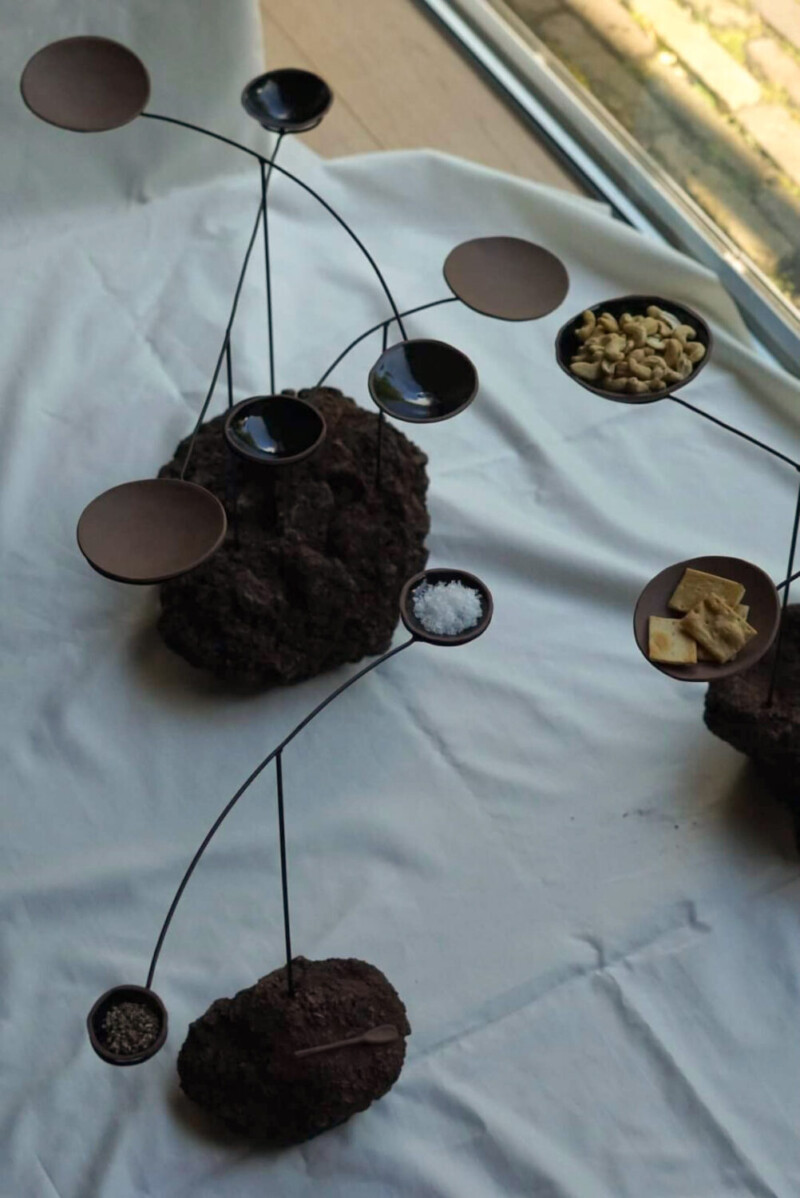 newsLees, kijk, luistereducationHannah De Bie, Erin De Schepper, Hans Druart, Luc Deschepperstudents and teachers landscape and garden design Mountain and school speak
newsLees, kijk, luistereducationHannah De Bie, Erin De Schepper, Hans Druart, Luc Deschepperstudents and teachers landscape and garden design Mountain and school speak articleLees, kijk, luistereducationThibault Goudketstudent jazz & pop Regulating emotions through music
articleLees, kijk, luistereducationThibault Goudketstudent jazz & pop Regulating emotions through music articleLees, kijk, luistereducationPartytent Art Center May those who feel inspired set up a party tent!
articleLees, kijk, luistereducationPartytent Art Center May those who feel inspired set up a party tent! articleLees, kijk, luistereducationlau persijnstudent film underneath it flickers
articleLees, kijk, luistereducationlau persijnstudent film underneath it flickers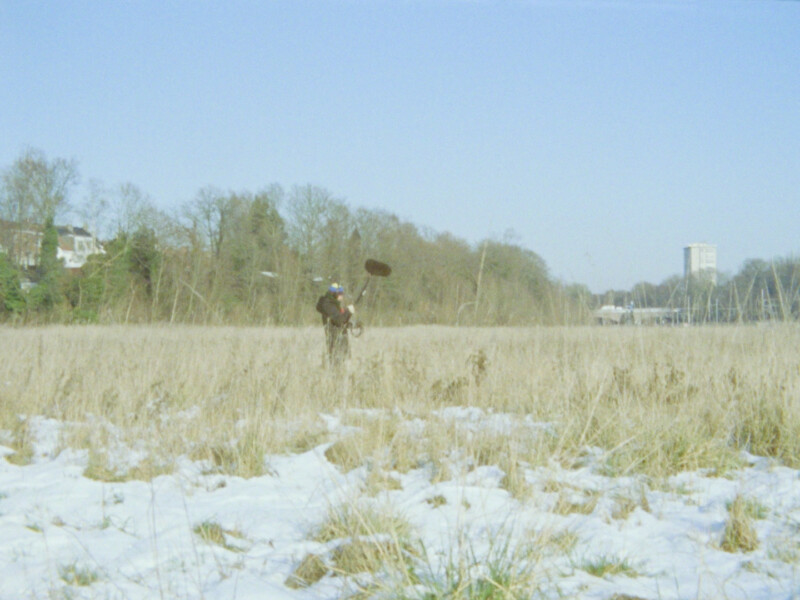 articleLees, kijk, luistereducationLuna Maesstudent jazz & pop I'm in lovey
articleLees, kijk, luistereducationLuna Maesstudent jazz & pop I'm in lovey articleLees, kijk, luistereducationLyn de Weijerstudent fotografie Dirkie
articleLees, kijk, luistereducationLyn de Weijerstudent fotografie Dirkie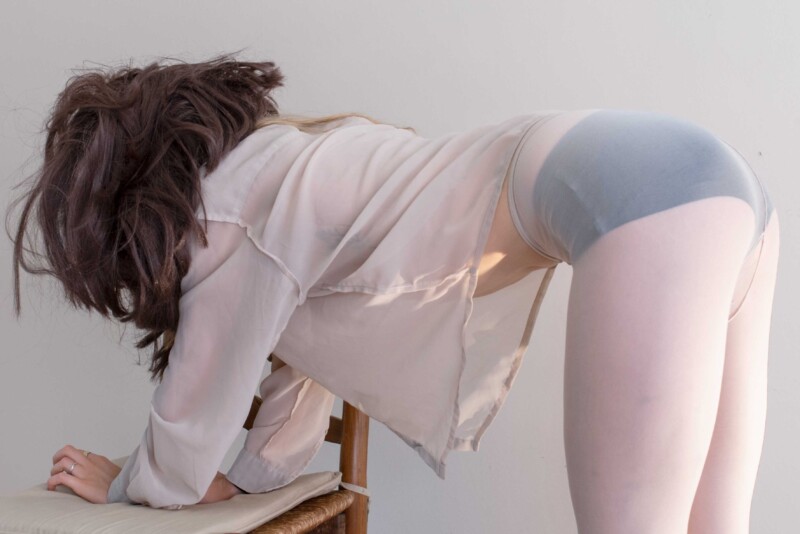 articleLees, kijk, luistereducationBavo Buys and Maliqa Fyestudents drama “It is a strange realism, but it is a strange reality.”
articleLees, kijk, luistereducationBavo Buys and Maliqa Fyestudents drama “It is a strange realism, but it is a strange reality.” articleLees, kijk, luistereducationAbel Hartooni, Seppe-Hazel Laeremansstudents fine arts, graphic design To confuse, to disorient
articleLees, kijk, luistereducationAbel Hartooni, Seppe-Hazel Laeremansstudents fine arts, graphic design To confuse, to disorient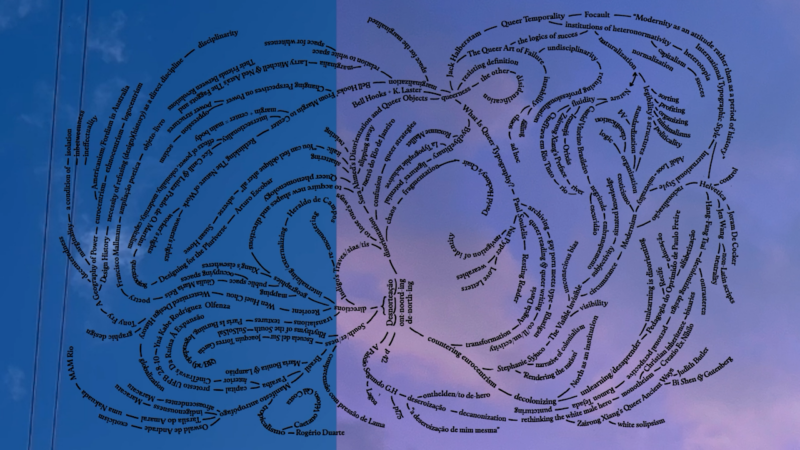 articleLees, kijk, luistereducationEva Jacobsstudent textile design “The unraveling of a torment: you have to begin somewhere”
articleLees, kijk, luistereducationEva Jacobsstudent textile design “The unraveling of a torment: you have to begin somewhere” articleLees, kijk, luistereducationHilke Walravenstudent vrije kunsten Wooden Days
articleLees, kijk, luistereducationHilke Walravenstudent vrije kunsten Wooden Days articleLees, kijk, luistereducationJules Mathôt, Cinemaximiliaanstudent educational master in audiovisual and visual arts “Instead of looking at the mirror, I was the one who was inside the mirror”
articleLees, kijk, luistereducationJules Mathôt, Cinemaximiliaanstudent educational master in audiovisual and visual arts “Instead of looking at the mirror, I was the one who was inside the mirror” articleLees, kijk, luistereducationSarah Chapuisstudent graphic design Peau d’Âne/Peau Neuve: the same, again, but different
articleLees, kijk, luistereducationSarah Chapuisstudent graphic design Peau d’Âne/Peau Neuve: the same, again, but different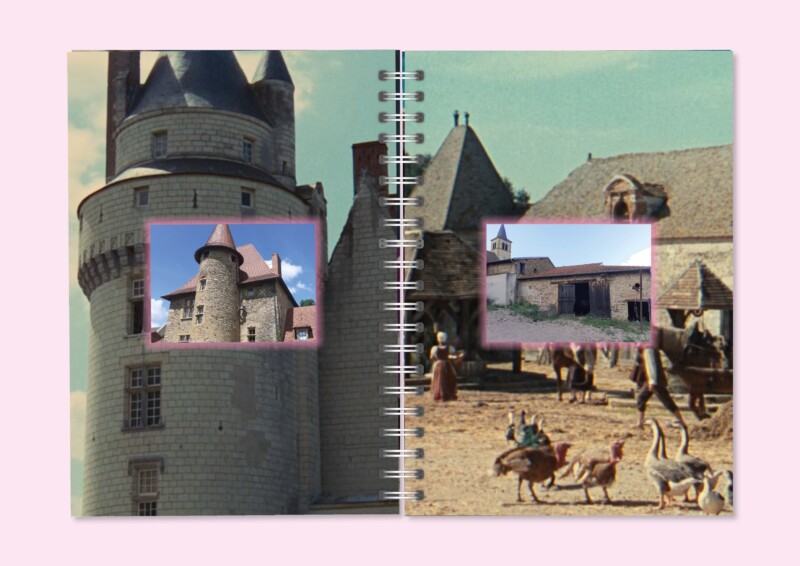 articleLees, kijk, luistereducationJosé Brandãostudent composition SanctuaryPortuguese composer José Brandão, 23, already has an impressive track record. He won several composition competitions and his piece Insurrection for solo piano was performed at Carnegie Hall. A promising beginning in the music world.articleLees, kijk, luistereducationGraduation 2024 Prize winners masters
articleLees, kijk, luistereducationJosé Brandãostudent composition SanctuaryPortuguese composer José Brandão, 23, already has an impressive track record. He won several composition competitions and his piece Insurrection for solo piano was performed at Carnegie Hall. A promising beginning in the music world.articleLees, kijk, luistereducationGraduation 2024 Prize winners masters newsLees, kijk, luistereducationGraduation 2024 drama festival
newsLees, kijk, luistereducationGraduation 2024 drama festival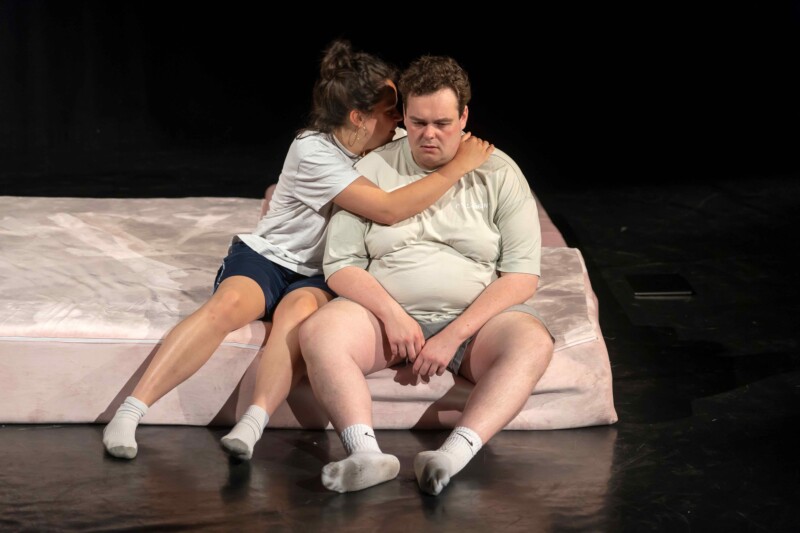 presentationLees, kijk, luistereducationGraduation 2024 classical music and composition
presentationLees, kijk, luistereducationGraduation 2024 classical music and composition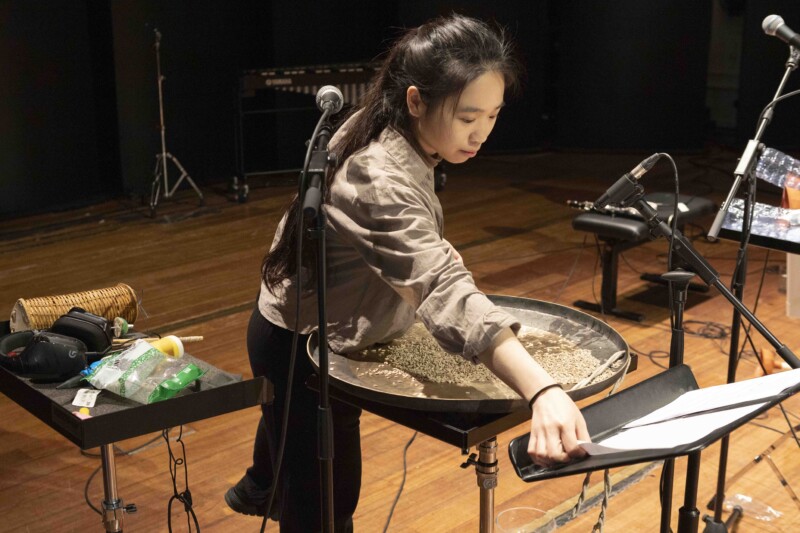 presentationLees, kijk, luistereducationGraduation 2024 fashion and textile design
presentationLees, kijk, luistereducationGraduation 2024 fashion and textile design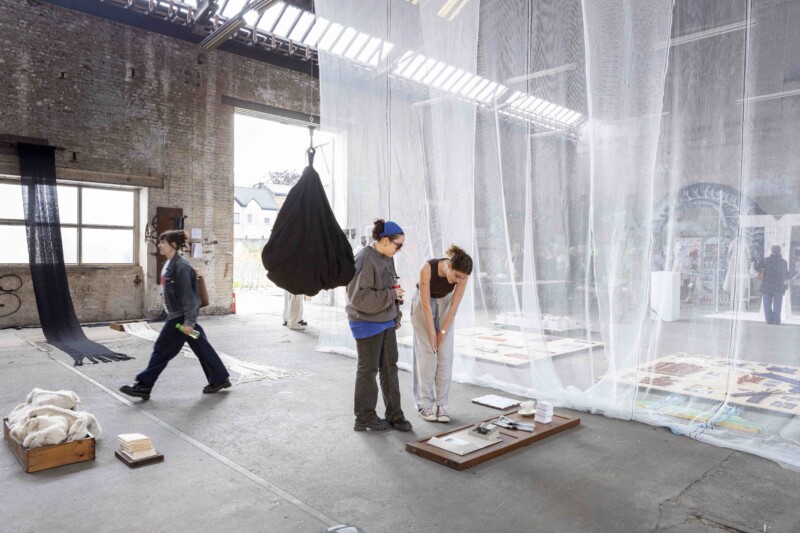 presentationLees, kijk, luistereducation Masterworks Vol. 13
presentationLees, kijk, luistereducation Masterworks Vol. 13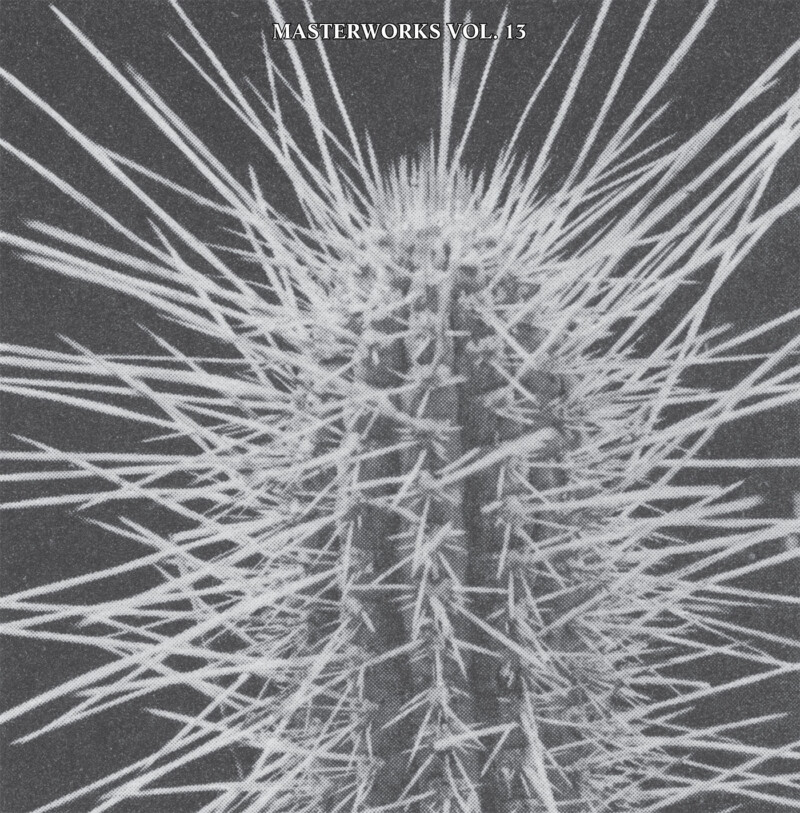 publicationLees, kijk, luistereducation
publicationLees, kijk, luistereducation